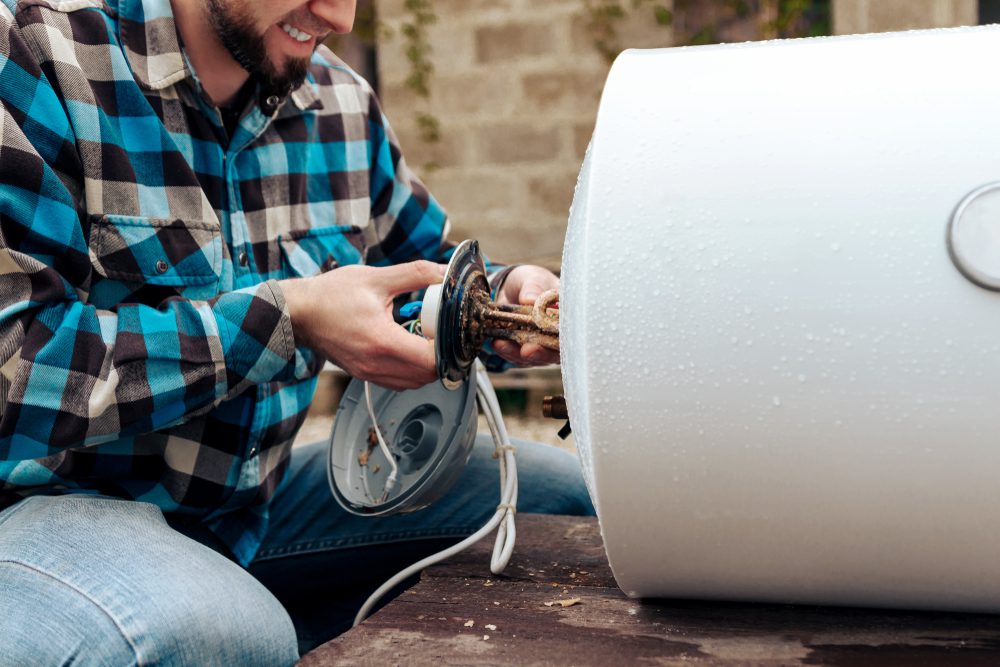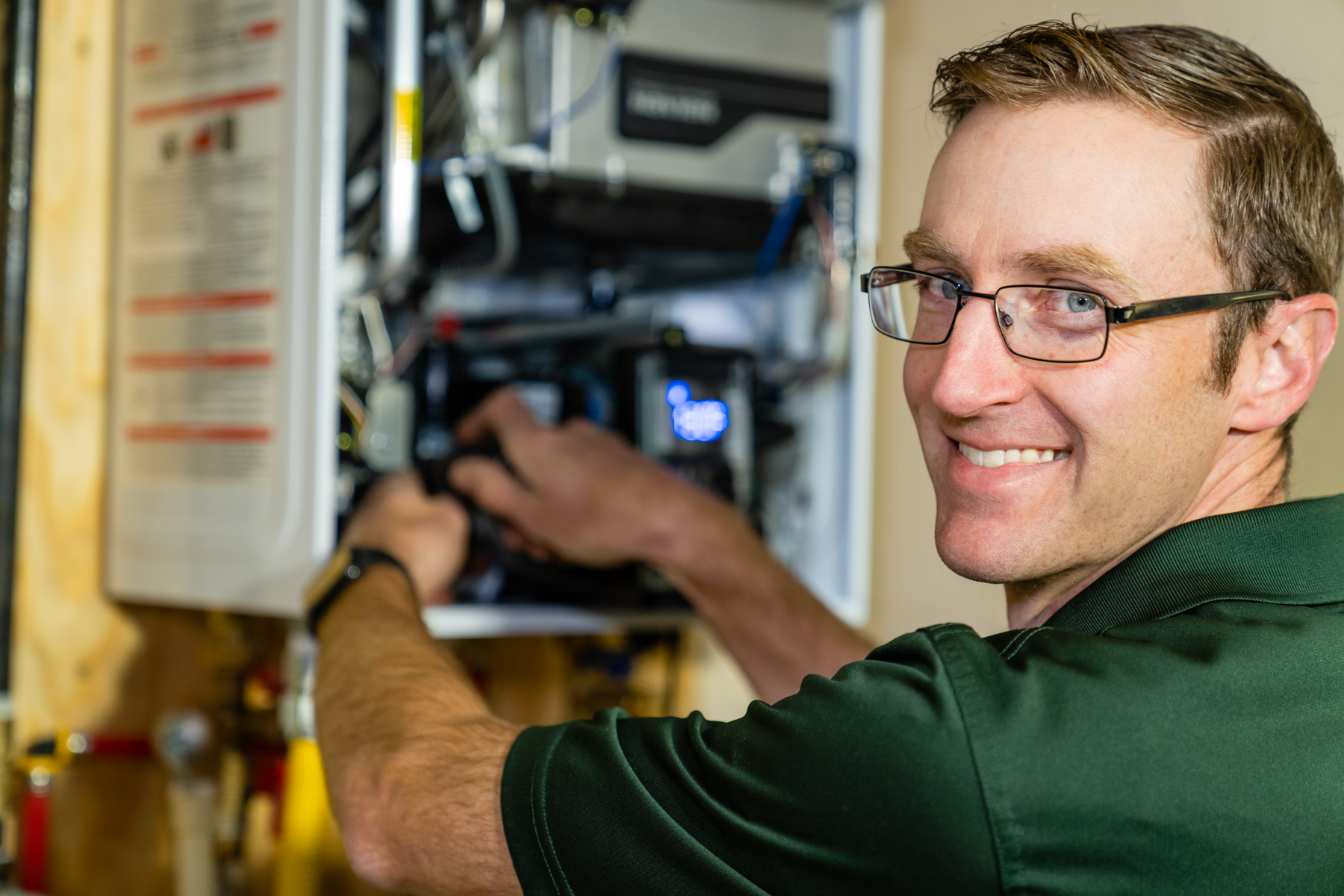Addressing the Most Frequent Hot Water Heater Emergencies
Addressing the Most Frequent Hot Water Heater Emergencies
Blog Article
The content which follows relating to Warning Signs You Need Water Heater Repairs is particularly captivating. You should keep reading.

A hot water heater is just one of the most vital basic home appliances that can be discovered in a residence. With water heaters, you don't require to undergo the stress and anxiety of heating water manually every single time there is a demand to wash, wash, or the recipes. Nonetheless, there is always a possibility that your water heater would certainly break down similar to a lot of mechanical devices.
It is important to keep in mind any kind of little malfunction as well as tackle it swiftly prior to things leave hand. Many times, your water heater begins to malfunction when there is an accumulation of sediments as a result of continuous use. As a precaution, regular flushing of your hot water heater is advised to avoid debris build-up and also prevent practical failing.
Typical hot water heater emergency situations and also how to handle them
Leaking hot water heater storage tank.
In this scenario, you ought to transform off your water heater, permit it to cool down, and thoroughly look for the resource of the trouble. At times, all you require to do is to tighten up a few screws or pipe links in cases of minor leaks. If this does not work as well as the leakage lingers, you could need to employ the services of a professional for an appropriate replacement.
Rising and fall water temperature level.
Your water heating unit could start generating water of different temperature levels normally ice scalding or cool hot. There may be a need to replace either the thermostat or the home heating device of your water heater.
Too little hot water
It might be that the water heater can't sustain the warm water demand for your apartment. You can update your water heating unit to one with a bigger capability.
Stained or stinky water
You need to recognize if the issue is from the container or the water resource when this occurs. You are specific that it is your water heating system that is faulty if there is no funny odor when you run cool water. The odiferous water can be caused by rust or the build-up of microorganisms or debris in the hot water heater tank. Once you discover this, you can attempt flushing out your container or changing the anode if the trouble lingers. The feature of the anode is to clear out bacteria from your container. Since the anode rod substitute calls for a detailed understanding of your water heater, you will need the aid of a specialist.
Final thought
Some home owners neglect little warning as well as minor faults in their hot water heater device. This only brings about further damage as well as a possible complete malfunction of your device. You need to deal with your water heater faults as soon as they come near avoid more expenditures and unnecessary emergency difficulties.
With water heaters, you do not need to go with the stress and anxiety of heating water manually every time there is a requirement to take a bath, do the laundry, or the meals. Your water heating system can begin generating water of various temperature levels generally ice chilly or scalding hot. It may be that the water heating unit can't support the hot water need for your home. If there is no amusing odor when you run cold water, then you are certain that it is your water heater that is malfunctioning. The smelly water can be triggered by corrosion or the build-up of bacteria or debris in the water heater container.
Common Water Heater Issues and What You Should Do
What Type of Water Heater Do You Have?
Before we begin it’s first important that you identify the type of water heater you have on your property. There are two main types of water heaters out there: conventional and high efficiency.
Both of these types of products typically use either gas or electricity to heat power. There are also solar water heaters that use a thermal collector on the roof or yard to heat the water.
While these models are not as common, they can cut heating costs in half. In this article, we will focus on conventional and high efficiency.
How Do My Electric and Gas Water Heater Work?
Though they look similar, electric and gas water heaters work very differently. It’s important to know their basic function because often problems can be specific to the heating source.
In the electric model, a thermostat on the side of the machine detects the temperature of the water in the tank. When the temperature needs to rise electricity flows to a heating element suspended in the water.
Gas models also use a thermostat device — typically with a mercury sensor at the tip and an additional sensor called a thermocouple. The thermocouple detects whether the pilot light is on and controls the flow of gas.
When the thermostat drops below the appropriate level gas is released which becomes ignited by the pilot light. The flame heats the bottom of the water tank which causes hot water to rise and cold water to drop.
This natural circulation continues until the water reaches the desired temperature. Then, the thermostat triggers the gas control valve to shut off the flow of gas.
What Are the Most Common Issues and How Do You Fix Them?
https://happyhiller.com/blog/common-water-heater-issues-and-what-you-should-do/

I'm certainly very curious about Common Hot Water Heater Problems and I'm hoping you enjoyed the new post. If you appreciated our blog posting if you please don't forget to pass it around. Thank you for your time. Don't hesitate to pay a visit to our website back soon.
Get An Estimate Report this page